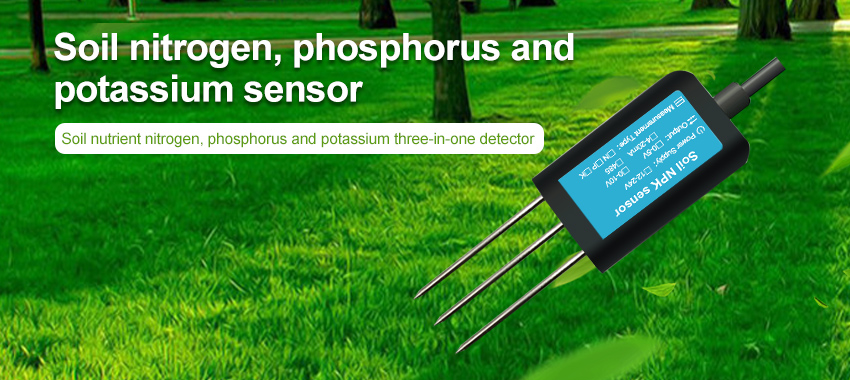Summary:
Soil nutrient sensor can detect the content of nitrogen, phosphorus and potassium in soil environment. We use soil npk sensors to determine soil fertility content.
Sensors can be buried in the soil for a long time.
Soil nutrient sensors can remain buried in the soil during use. It has a high quality probe, rust resistance, electrolytic resistance, salt and alkali corrosion resistance, to ensure the probe part of the long-term operation.
Therefore, this soil nutrient sensor is suitable for all kinds of soil.
Suitable for testing alkaline soil, acid soil, basal soil, seedbed soil and coconut bran soil.
The sensor does not require any chemical reagents. It has the advantages of high measurement accuracy, fast response speed and good interchangeability.

Because the soil nutrient sensor has a Modbus communication port, the sensor cannot be used directly with the microcontroller. Therefore, you need Modbus module and connect the sensor to the microcontroller.
Product features:
1, soil NPK sensor: made of ABS material, durable, durable.
2, high resolution: resolution up to 1mg/kg (mg/ l), accuracy up to 2%.
3, widely used: agricultural production, greenhouse breeding, orchard seedling, soil research.
4, easy to use: portable measurement, just insert it into the soil and read.
5, IP68 waterproof and dustproof: ensure the normal operation of components for a long time. Good sealing performance prevents moisture from entering the instrument.
Product parameters:
Measurement range: 0-2000 mg /KG
Measurement accuracy: +-2%F.s
Resolution: 1 mg/kg (mg/l)
Operating temperature: 5 to 45°C
Working humidity: 5 to 95% (relative humidity), no condensation;
Optimization of 30 ~ 60%
Package rate: 2400/4800/9600
Communication port: RS485
Power supply: 12V- 24V DC
Sensor wire length: 1.2 m